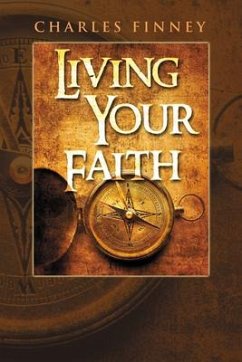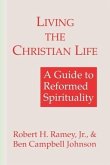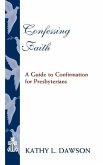You say you are living for God, but do you enjoy living the Christian life? Have you taken hold of all the promises and privileges that are yours through faith, or are you missing out on much that God has for you? Legendary preacher and revivalist Charles Finney explains how you can be free from guilt and sin so that you may live a life of destiny, clean and pure before the Lord. If you find yourself backsliding or your mind is confused, unbelief is the cause--and faith is the remedy. Finney will show you how to rekindle your faith and experience a supercharged life with God. Discover a new power and joy in everything you do as you begin Living Your Faith.
Bitte wählen Sie Ihr Anliegen aus.
Rechnungen
Retourenschein anfordern
Bestellstatus
Storno



